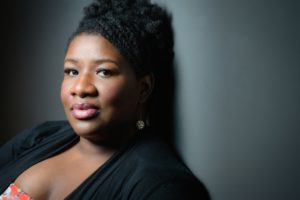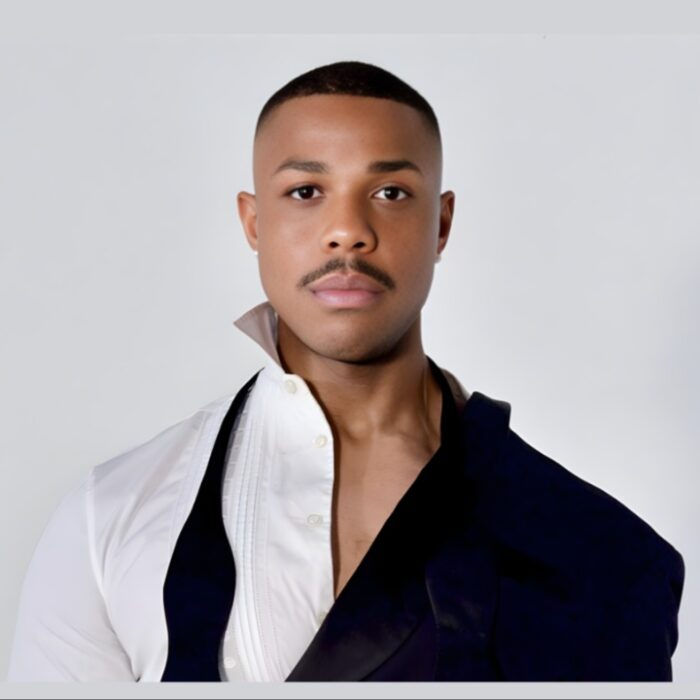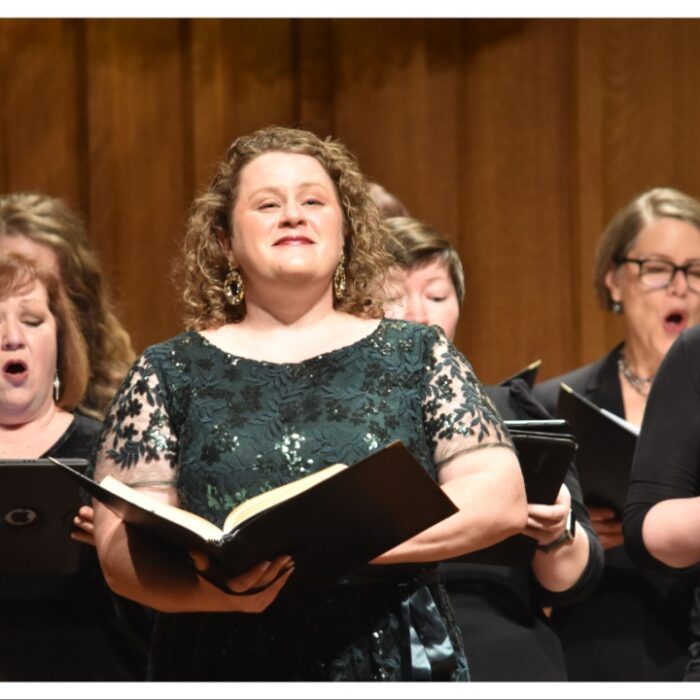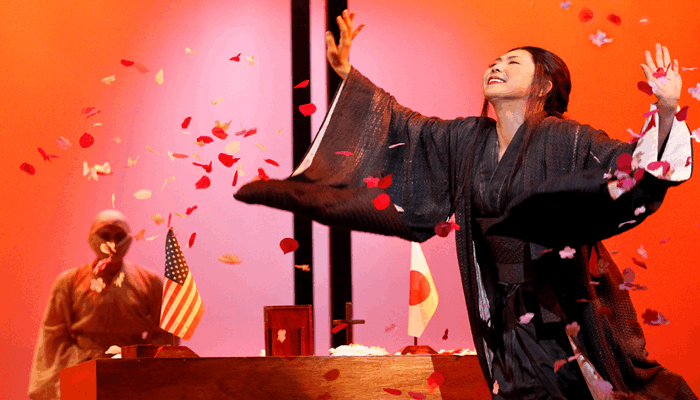
Q & A: Ronnita Miller On Singing The Ring Cycle & Being An Ensemble Member at the Deutsche Oper Berlin
By Francisco SalazarCredit: Simon Pauly
***Editorial Note – This interview was conducted as part of series of interviews dedicated to previewing the Lyric Opera of Chicago’s Ring Cycle. Unfortunately, that performance was canceled, but out of respect to the time put into this project by the artists and organizations, we will endeavor to publish the over coming days and weeks.(Given the context, interview will be published as Q & As in their original states).***
Ronnita Miller is an ensemble member at the Deutsche Oper Berlin where she has sung a number of major roles and obtained critical attention throughout the world. She has also sung at some of the world greatest stages including the Metropolitan Opera, Teatro Real, San Francisco Opera, and Lyric Opera of Chicago.
Miller has also made a name performing Wagner’s Ring Cycle, taking on multiple roles in diverse productions. She is set to take on two roles in the Lyric Opera of Chicago’s new Ring Cycle.
The mezzo-soprano spoke to OperaWire about Wagner’s masterwork, the Lyric Opera of Chicago, and the challenges of being an ensemble Member.
OperaWire: What is it like to return to the Lyric Opera of Chicago in The Ring Cycle?
Ronnita Miller: It is a tremendous honor and the first time they asked me to do it, I was like “Are they serious?” I have always wanted to sing at the Lyric and I honestly did not think they would pick me to do Erda in the Ring. So it is such an honor to sing there. I love the city and I love the company.
OW: You have already done “Siegfried” with the company and this time you will do the First Norn in “Götterdämmerung.” What was the experience of working with David Pountney on this production?
RM: It’s interesting because it was my first time working with him but I had done one his productions before in Berlin. It’s one of my favorite productions and to actually work with him and meet him was incredible. He is a very generous director and you feel safe. I immediately felt I could explore different things with him and that is always a huge gift. You feel like you can actually work, learn, and explore. And in a new production it’s even better. I knew the music so the experience was even more gratifying.
OW: You have done the First Norn in other productions. While it is one scene, it is a major moment in the opera. What are the major challenges of singing this role? How does it differ from other roles you have done in The Ring Cycle?
RM: I think the First Norn is part of a huge ensemble piece. The Ring Cycle is an ensemble piece and there are no small roles or characters. Everything that everyone does affects someone else. I think singing the Norn is probably one of the easiest parts because her lines are so lyrical and you really just could take a deep breath and tell the story. That is their job, to tell the story and emote what is happening into their world as a result of all of Wotan and Loge’s actions and everyone else.
I think its probably my favorite part, which is odd having sung one of the Valkyries and Erda. But the music is so magical and it’s not like anything else in the Ring. These three women operate outside the story of the Ring. Yes they are a part of it but I feel like they exist on this plain. The only characters who knows about them are Erda and Wotan.
OW: “Götterdämmerung” is the largest of the four works. What does it feel to be part of this masterwork?
RM: It is genius music and every time I do it, it is so emotional. Getting to the end of that work, you always realize it will always be magical. It’s amazing.
OW: In “Götterdämmerung,” you sing at the beginning and don’t return. What is the feeling after you finish and what do you do as you wait for the curtain calls?
RM: That depends on the company. Sometimes the Norns will not bow and sometimes they do. In between, you put your street clothes on and you get lunch and then I always bring my laptop to play some PC games or I do some knitting to work on something. It’s important to keep yourself busy and listen to the music. I sometimes read a book as well. I cannot study other music. I find it very difficult to try to learn other music as an opera is going on because I want to listen to the opera.
OW: You have done a number of roles in The Ring Cycle. Tell me about your first Ring and what roles you sang?
RM: The first time I did The Ring Cycle was at the Deutsche Oper Berlin in their last production of Götz Friedrich. I was in all four operas. I did Erda in “Das Rheingold” and “Siegfried,” Grimgerde in “Die Walküre,” and First Norn in “Götterdämmerung.” I was the only singer in that production that did all four operas. In other places I sang Flosshilde, covered Erda, sang Schwertleite, and covered the Norn. For the most part I have been involved in all four. At the Metropolitan Opera I did three out of four.
OW: What are the challenges of doing four different operas and different roles throughout a cycle?
RM: It’s actually kind of fun. One of my favorite things was having done Erda and then being able to sing Fricka. Going back between those two is interesting because you get the perspective of the wife and the other woman. They inform the way you sing each part.
Since I’ve done Erda so many times, when I explored Fricka I realized that the scene in “Die Walküre” is expressing extreme human hurt. She loves Wotan but their marriage is not great. She tells him that “I am the goddess of marriage and it is her duty to protect it so he must listen to her even though he has cheated many times.” To sing those words having already portrayed the other woman is really informative.
Having done the Rhinemaidens and then the Norns is also something special. The Rhinemaidens are these light women who don’t really understand the gravity of their actions or how the fact that they are so mean to Alberich put into notion what will come in the next three works.
And then to sing the Norns, whose world is torn apart by the Rhinemaidens, is very powerful. There are some vocal challenges but I think more about the character work and singing your opposite really informs what you can do and what you can play up in between the characters. That is fascinating.
OW: Have you done all the roles you would like to sing in The Ring?
RM: No. I want to do Waltraute. That is the only one left and it’s so beautiful. I would love to take crack at it.
OW: You’ve done The Ring at the Deutsche Oper Berlin, the Lyric Opera of Chicago and the Metropolitan Opera. Is there a difference in the way audiences respond to the music?
RM: I think the enthusiasm is there and being in Germany, you can tell they have a tradition. In San Francisco, the response was overwhelming and at the end of “Götterdämmerung,” the house erupted. It was unbelievable and it is much more an event when an opera house in the U.S takes on the ring. It’s a huge undertaking and they usually have Ring events around it. I think that definitely builds more interest around it. There are so many people that I met where it was their first opera and they were enthusiastic about the work they had seen. I think it is more special in the United States because it is a huge undertaking and Germany has had it longer.
OW: You are part of the Deutsche Oper Berlin Ensemble. Tell me about your experience and how it has shaped your career?
RM: Being here has taught me so much about stamina and taking care of my voice because unlike houses in the United States, this is a repertoire house and you are doing many operas and studying while you are singing one. The orchestra rehearses for one opera and then performs a different one that same night so it teaches you how to pace yourself and where to rest.
It also teaches you how to say no to projects and how to be enthusiastic to say yes to other projects. It teaches you how to stretch yourself without being afraid about messing up or about something ruining you. There is a freedom in being able to perform and try out repertoire in a more rapid pace that really teaches you what you can do. If you do it right, it can give you the bravery to try new things and I have met so many incredible people and done projects in other countries that would never have happened had I not been here. You also work with so many different conductors. It is a gift to be in a capital city and repertoire house and be able to go out and visit other countries and just really learn how to apply all the acting classes and research to roles.
OW: Being in this ensemble and doing so much repertoire in a season, have you been able to to do some dream roles?
RM: There have been some things that I’ve done that I would have never looked at. The biggest was Fidès in “Le Prophète.” It was not a dream role or on my radar. When it came to me, I was surprised. It is a monster role and I did one show. When I opened the score I said, “they have got to be kidding me. There is no way.” I went through it, practiced, learned it and it was really the biggest and the first time I sang throughout the entire opera. I have done so many roles that are one part of the opera and you leave. These roles that are big that require you to test your metal would have never come to me in the states and it is one of those fortunate things about being in a repertoire house where you can build your reputation with one company and everyone who comes in knows your voice and how you have grown. You can try many things. It’s been amazing and the exposure is wonderful.
Sometimes though you would want to try something out in a less visible house but sometimes it’s just about jumping in the water and seeing what happens. You just have to do it.
OW: What are some of your biggest dreams that you hope to accomplish in the next years? What have you learned over the past years?
RM: I want to keep singing and challenging myself. It helps me to know myself better. It is something that I do for myself because I need that challenge and I will keep doing it because it is important to be visible.
I also think it is important for a plus-sized black women to sing opera and be able to show that representation. That drives me as well. It is getting better and there are strides being made for visibility for ethnicities that have not been represented on stage. I want ethnicity to not be news one day. It will take time but it will change.
I would also love to make music into something that can really help people. I would love to do charity work that would benefit. Poverty and human trafficking are things that are important to me and I would want music to benefit those causes. I also want to spend more time with family and friends. Traveling and seeing new places is great but family is important and being in a country away from that has really taught me about the importance of human connection. I hope to make human connection in all forms from communication through music and being with family. I want the balance.
Categories
News

